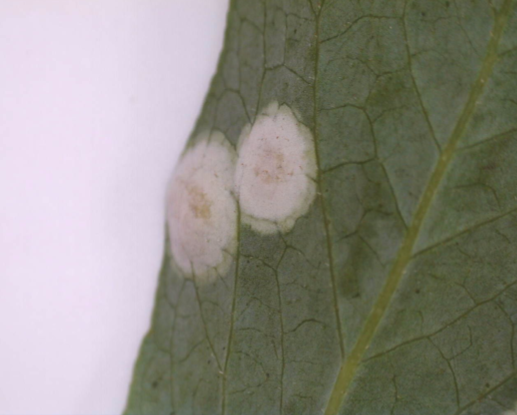April-June 2021
One Year On
Well, it has been more than a year now of the COVID-19 pandemic. It has been a long and frustrating year. Extension kept working, but our ability to interact with everyone on a face-to-face basis was extremely limited. So, we adapted with webinars, social media, and other digital interfaces. Sometimes it worked great and other times not so much. But now we are on the cusp of a return to “normal operations” yet the pandemic still rages. Other countries are feeling the brunt of it right now but it still exists here in the U.S. and frankly may always be here. I can happily say I am fully vaccinated. I only had a few, mild side effects for a day then everything was normal again. I’m not a medical doctor, but I urge you to get vaccinated. If you have hesitancy about it speak to someone who you trust and fully understands the vaccine. The more folks who are vaccinated will mean a lower risk of losing another person to COVID-19.
Blueberry Jubilee 2021
Eric T. Stafne, Fruit Extension Specialist, MSU-ES
The 2021 Blueberry Jubilee in Poplarville is on for this year. It will take place on June 12. If you are interested in participating as a vendor let me know ASAP. This year we have a new way to pay via PayPal (which makes things easier for me) or it can still be done the usual way (check). The deadline to sign up is June 4 if you are sending a check. If you are paying via PayPal the deadline is June 10. The blueberry jubilee in Poplarville is a good way to interact with consumers — and they all love blueberries!
Exobasidium Refresher
Eric T. Stafne — Fruit Specialist, MSU
I have received quite a number of contacts regarding Exobasidium this year. It is not a real surprise with all the rainfall this spring. In case you have not seen it before, or are not sure what it looks like see the image below. It shows the white lesions caused by Exobasidium, which is a fungus. While there is still a lot we don’t know about this disease some work has been done in Georgia on how to control it. If you are interested in all the details about this disease go to this document from the University of Georgia.
So, what can be done to control it? First, it appears to like areas with poor air flow and standing water. Management to reduce these things such as proper pruning and water drainage improvements may reduce the disease; however, it is unlikely to fully eliminate it. Therefore, chemical control measures are needed. Studies out of Georgia using lime sulfur compounds (including Sulforix) greatly reduced the disease when applied at the proper time, about 2 weeks prior to budbreak. Follow up applications of products like captan also helped to further reduce the disease when applied at leaf bud break and during bloom. Last year I was able to get Sulforix listed for use in Mississippi. While not listed specifically for use on Exobasidium it does help control other pests we deal with, so using may provide additional benefits. There appears to be some differences among varieties on their susceptibility.
For complete information on pest control visit the Southern Region Small Fruit Consortium Blueberry IPM Guide.

2021 Mississippi Blueberry Education Workshop Recap
Due to limitations imposed by the COVID-19 pandemic, the 2021 Mississippi Blueberry Education Workshop was forced to go on as a virtual event. Below is a recap of the speakers and a link to the whole program on YouTube.
Pruning Blueberries and Associated Plant Diseases
Renee Holland, Area Blueberry Agent University of Georgia Extension
Pruning is a very important horticultural practice in blueberries to help promote a strong framework in the architecture of the plant, to better the longevity of the plant, and to increase fruit yields and quality. Pruning can help remove diseased or damaged plant tissue that can serve as a source of microbial pathogens, if not removed from the plant and the field area. Research has shown the benefits of increased yields and reduced leaf diseases through pruning practices. We want to be mindful of our selection of pruning tools for the particular pruning technique or job, maintenance of those tools, and the disinfestation of the tools to prevent the movement of pathogens from plant to plant and field to field.
Weed Management and Chemical Mowing for Blueberry Production
Dr. Matt Bertucci, Assistant Professor Sustainable Fruit and Vegetable Production University of Arkansas Dept. of Horticulture
Dr. Bertucci will describe the fundamentals of weed management in blueberry production, focusing on weed biology and integrated weed management strategies. He will also discuss the chemical options for slowing turf growth in row middles to reduce mowing frequency as harvest nears.
The dirt on nitrogen fertilization in blueberries
Cheyenne Sloan, Soil science student at Washington State University Northwest Research and Extension Center
This presentation will provide an overview of how soil and soil organic matter could impact nitrogen fertilization practices. Topics will include the importance of nitrogen in a blueberry fertility management program, what is soil organic matter (SOM), mineralization, and a brief overview of a research project looking at the effects of nitrogen fertilizer rate at varying SOM levels.
Spotted-Wing Drosophila (SWD) biology, advances in SWD Control, and surveillance of emerging berry pests
Dr. Blair Sampson, Research Entomologist, USDA-ARS Thad Cochran Southern Horticultural Laboratory, Poplarville, MS
Presented is an update on SWD science and approaches to this fly pest’s management in blueberry fields as well as reports of new, emerging pests of berry crops that have the potential to economically impact southern blueberry producers.
--Click this link for the entire 2 hour workshop, available on YouTube.--
If you value this type of programming and would like to see more of it please let me know. For next year I am considering a traditional in-person event coupled with a second day of online presentations.
XII International Vaccinium Symposium
While this may be a little out-of-the-ordinary for most readers of this newsletter, there will be an international symposium devoted to Vaccinium later this year. I was fortunate enough to attend last time (it was in Orlando, FL). If you are interested see the information below:
I am pleased to inform you that the XII ISHS International Vaccinium Symposium (Truro, Nova Scotia, Canada) will be hosted exclusively in a virtual digital formal from 30 August to 1 September 2021.
The themes for the symposium include:
-
Breeding, genetics, genomics, and phenomics
-
Germplasm and propagation
-
Pollination, production systems, and footprint analysis
-
Plant physiology
-
Soil fertility and plant nutrition
-
Pest management
-
Berry composition and postharvest attributes
-
Marketing and economics
- Precision agriculture and mechanization
Details on the programme and other information can be found on the symposium website that can be found HERE.
Sincerely,
David Percival Convener
#Vaccinium2021
Mississippi Blueberry Field Day 2021
Eric T. Stafne, Fruit Extension Specialist MSU-ES
Unfortunately, the COVID-19 pandemic still has the USDA-ARS in lockdown and thus our access to the blueberry fields. While I had hopes we could make a 2021 field day work, it was obvious early in the year that it was not meant to be. But, I hope that 2022 will allow us to do it again, Once I get word that a field day may be possible, I will put an update in this newsletter or send an email to everyone.
The Mississippi Vaccinium Journal is a quarterly, digital publication of Mississippi State University Extension Service. Subscriptions may be obtained by sending an email address to eric.stafne@msstate.edu. All articles and images are copyright of Mississippi State University Extension Service.
Mississippi State University does not discriminate on the basis of race, color, religion, national origin, sex, age, disability, or veteran status.


